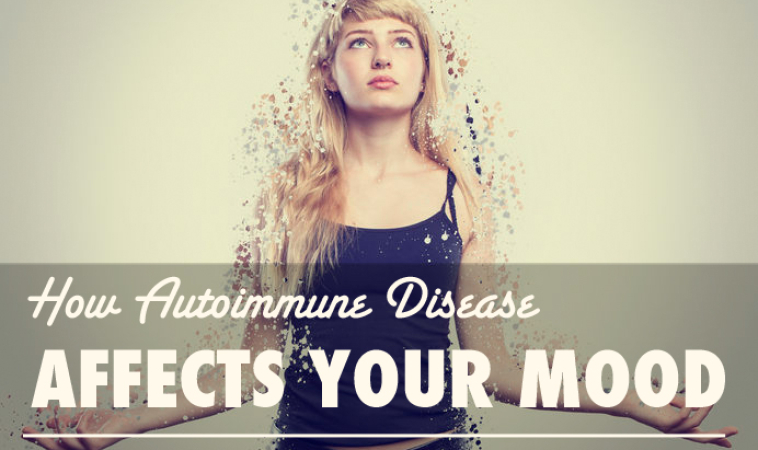Dr. Kimberly Sanders, ND
@_drkimsanders
Inflammation on the Brain?
A fascinating and groundbreaking article was published this month explaining that a missing link between the immune system and the brain may have been discovered. This article explains that lymphatic vessels, which carry immune cells and inflammatory chemicals, may be found within the central nervous system (i.e. the brain and spinal cord).1 Never before have lymph vessels been identified so abundantly in the central nervous system. This discovery may have implications for patients with inflammatory autoimmune diseases, including multiple sclerosis, PANDAS, Lupus, Rheumatoid Arthritis, and more. If there is truly a physical link between the immune system found in the rest of the body and the brain, then inflammation in the rest of your body may affect what happens in your brain. Specifically, this inflammation may alter your brain chemicals, also known as neurotransmitters, which control your mood, energy level, and memory.
Flares and Feelings
Many autoimmune patients seen in my clinic intuitively know this connection to be real. They know that a bodily flare also makes them feel irritable, tired, depressed, or brain-fogged. They often state that once the flare subsides, the mood improves. This body-mind link may be explained by this physical connection between the brain and the immune system.
Serotonin and Quinolinic Acid
One way that inflammation alters your mood is by affecting your serotonin pathway. Serotonin is an important brain chemical that combats depression and causes you to feel happy and relaxed. Serotonin is made in the body from a precursor called tryptophan. When inflammation is high, tryptophan proceeds down an alternate pathway to form kynurenic acid and quinolinic acid, rather than serotonin.2 Quinolinic acid is particularly neurotoxic and has been associated with depression.3 Quinolinic acid is elevated in response to inflammation and stimulates glutamate receptors in the brain. When glutamate is stimulated, it causes over-excitation of your brain cells and ultimately brain cell death.3 Depressive symptoms have been shown to reduce as quinolinic acid is reduced, leading us to search for natural inhibitors of this process.
What Can Help?
One article outlines a number of natural inhibitors of kynurenic acid and quinolinic acid production. Flavonoids isolated from the botanicals Passiflora incarnataand Scutellaria baicalensis have shown an ability to reduce quinolinic acid levels.4 Not surprisingly, both of these botanicals have been used traditionally to treat depression. Now, current research explains that these botanicals may help reduce depression by reducing the conversion of tryptophan into quinolinic acid. This may reduce brain inflammation and also naturally restore serotonin levels.
Other interventions for reducing inflammation-associated depression, brain fog, irritability, and anxiety is to reduce overall inflammation. Patients with an autoimmune disorder have a large amount of inflammation driven by tissue damage and propagated by inflammatory chemicals called cytokines. Inhibiting these inflammatory chemicals with nutrients and botanicals, such as curcumin, Boswellia serrata, resveratrol, and omega-3 fatty acids, may reduce the conversion of tryptophan into quinolinic acid. Certainly the most important intervention that someone can make to reduce inflammation is to adopt an anti-inflammatory diet. Currently, the Mediterranean diet is one of the most well-researched anti-inflammatory diets. This diet intervention is based on high fruits and vegetables, whole grains, legumes, olive oil, fish, and lean poultry with a low to moderate consumption of dairy and red meat. Some studies have found a correlation between the Mediterranean diet and lower levels of depression.5 This effect could possibly be explained by the role of lower inflammation on modifying brain chemicals.
Who Should Care About This?
Not every patient with depression, anxiety, or irritability will have elevated quinolinic acid levels. This phenomenon seems to be most relevant for patients that are significantly inflamed, such as the autoimmune patient, who is also feeling brain fog, anxious, depressed, or irritable. It is possible that the inflammation in the rest of your body is crossing into your brain and causing these feelings. Balancing brain chemicals is one part of the process, but more importantly, we need to balance the immune system and reduce inflammation.
What Do You Need To Do Next?
Consider measuring kynurenic acid, serotonin, or quinolinic acid to assess how much inflammation is impacting the brain. Secondly, continue working on reducing inflammation through an anti-inflammatory diet and anti-inflammatory supplements. Third, find the source of the inflammation and reduce it.
 Kimberly M. Sanders, ND, is a licensed naturopathic physician in Connecticut. She graduated from the University of Bridgeport and completed her CNME-accredited residency training there, as well. She was named 3-time MVP of the ZRT Cup Competition as a medical student. Dr Sanders currently owns ArthroWell Naturopathic, a specialty practice in rheumatology. She has undergone extensive pediatric and rheumatology training, and has lectured on the topic of autoimmunity and autism at the annual CNPA and NHAND conferences. Her passion in practice is finding the underlying cause of immune dysfunction and restoring balance to the immune system with functional medicine.References:
Kimberly M. Sanders, ND, is a licensed naturopathic physician in Connecticut. She graduated from the University of Bridgeport and completed her CNME-accredited residency training there, as well. She was named 3-time MVP of the ZRT Cup Competition as a medical student. Dr Sanders currently owns ArthroWell Naturopathic, a specialty practice in rheumatology. She has undergone extensive pediatric and rheumatology training, and has lectured on the topic of autoimmunity and autism at the annual CNPA and NHAND conferences. Her passion in practice is finding the underlying cause of immune dysfunction and restoring balance to the immune system with functional medicine.References:
- Louveau A, Smirnov I, Keyes TJ, et al. Structural and functional features of central nervous system lymphatic vessels. Nature.2015;doi:10.1038/nature14432.
- Chen Y,Guillemin GJ. Kynurenine pathway metabolites in humans: disease and healthy States. Int J Tryptophan Res. 2009;2:1-19.
- Bay-Richter C,Linderholm KR, Lim CK, et al. A role for inflammatory metabolites as modulators of the glutamate N-methyl-D-aspartate receptor in depression and suicidality. Brain Behav Immun. 2015;43:110-7.
- Chen S, Corteling R, Stevanato L, Sinden J. Natural inhibitors of indoleamine 3,5-dioxygenase induced by interferon-gamma in human neural stem cells. Biochem and BioPhys Res Comm. 2012;429:117-123.
- Sánchez-Villegas A,Martínez-González MA, Estruch R, et al. Mediterranean dietary pattern and depression: the PREDIMED randomized trial. BMC Med.2013;11:208.


















Ah, finding the source. That seems most logical to me and lowest on my rheumatologist’s list. Where to start finding the source?